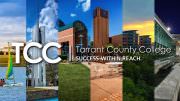Sara Randazzo
A federal appeals court has dealt the latest blow to a lawsuit alleging law school students were defrauded with misleading employment statistics.
The Third U.S. Circuit Court of Appeals on Tuesday upheld a lower-court’s ruling that Widener University School of Law graduates don’t have enough in common to sue the school through a class action.
A group of Widener Law graduates sued back in February 2012, claiming they were charged inflated tuition based on employment stats purporting to show 90% to 97% of graduates were employed after getting their degrees. The reality, according to the complaint, is that only 50% to 70% were working in full-time legal jobs. At the time of the lawsuit, the school charged nearly $35,000 a year in tuition.
The case survived a motion to dismiss but couldn’t pass muster as a class action, with a federal district court judge in New Jersey ruling a year ago that the graduates didn’t have enough in common to be certified as a class. The lower court said the class failed because some graduates found jobs while others didn’t, and because the class sought to include graduates who attended the school after Widener improved how it reported job statistics. The decision also said some students may not want to join a suit tarnishing the school’s reputation.
The Philadelphia-based Third Circuit affirmed the ruling, though it got there by different reasoning.
The three-judge appellate panel said that if a fraud did indeed occur, it doesn’t matter that graduates had different employment outcomes. In a footnote, Judge Michael Chagares, who wrote the opinion, likened the reasoning to the lotto:
As a loose analogy, a lottery ticket’s actual value at sale does not retroactively plummet to zero the moment a purchaser loses or skyrocket the moment a purchaser wins. If the odds were honestly presented, all purchasers received exactly what they paid for, and neither a loser nor a winner could claim any damages. And if the odds were misrepresented, both players would have the same damages arising from the fraud — namely, they were overcharged for placing their bets.
Even so, the appeals court said there still wasn’t enough support for the plaintiffs’ inflated-tuition theory of damages.
David Stone, an attorney for the plaintiffs, said he’s disappointed “that the court did not see that the class was damaged by inflated tuition.” He told Law Blog he’s reviewing the appeal options and for now plans to push the case forward with individual plaintiffs rather than a certified class.
Attorneys for the law school, which has since split into two campuses in Delaware and Pennsylvania, didn’t immediately return requests for comment Tuesday. The school has denied the fraud allegations.
More than a dozen class actions were filed in 2011 and 2012 against law schools alleging similar deceptions, but they’ve been slowly knocked out of court. In March, a San Diego jury sided with Thomas Jefferson School of Law in a case brought by an alumna who claimed she applied to the school because of misleading post-graduation employment data.
Source: blogs.wsj.com




